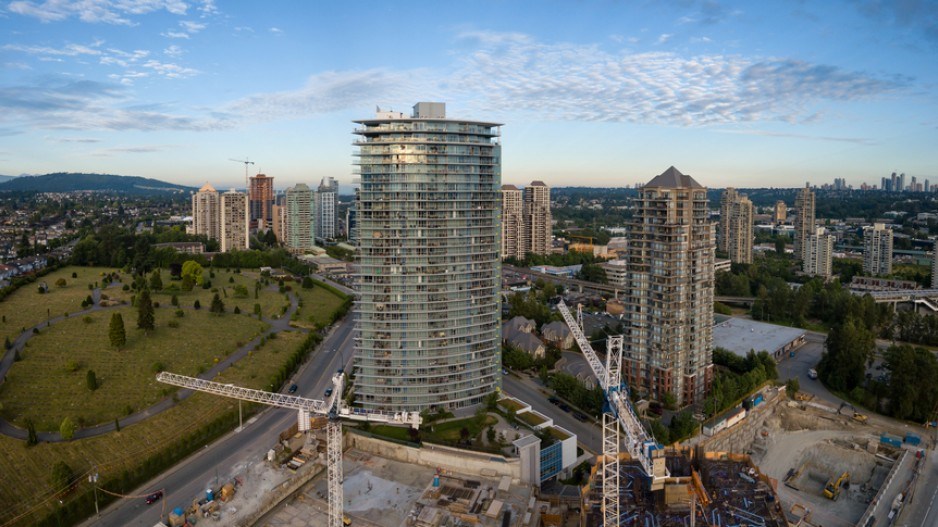While the February 13 B.C. Throne speech hinted that attacking speculation is part of the answer to reducing housing costs in Metro Vancouver, developers say the reverse is true.
In the past, speculative developers would bring new condos to the market in the hope of selling them, and lower prices would result from the competition and increased supply, they note.
But banks are so risk-averse today that they demand that any new condominium project has 50% to 60% of the units pre-sold before they will finance the project, according to Jason Turcotte, vice-president of development at Cressey Development Group, which will complete from 600 to 800 multi-family units this year in Metro Vancouver.
“Speculation has been removed from the market,” Turcotte said. “All that is being built is already pre-sold.”
If a speculator can’t get the pre-sales needed for financing, the project simply never starts, he explained.
“The big banks only want to deal with the major developers,” said Byron Chard, CFO of Chard Development, a large Vancouver condo and rental developer. Chard said banks are demanding higher pre-sales than in the past and that rules are similar with all five of the big banks that Chard works with.
Chard is currently pre-selling a 58-unit condominium project on Main Street, Vancouver, where the last two pre-sale units are priced from $1.79 million.
“We not only have to hit that pre-sale level, they have to be personal buyers, not foreign buyers – well, maybe one or two – or corporate buyers. We can’t sell more than one suite to any individual,” Chard said. “Banks have a lot of control over our pre-sales.”
Chard conceded tougher pre-sale qualifications also benefit developers, who are facing soaring construction and land costs, plus municipal fees and delays that can layer costs on long after the pre-sales are finished.
“We have to make sure our [pre-sale] buyers close. We want it in their personal name so they will close,” Chard said, “We have a lot of risk in this game.”




